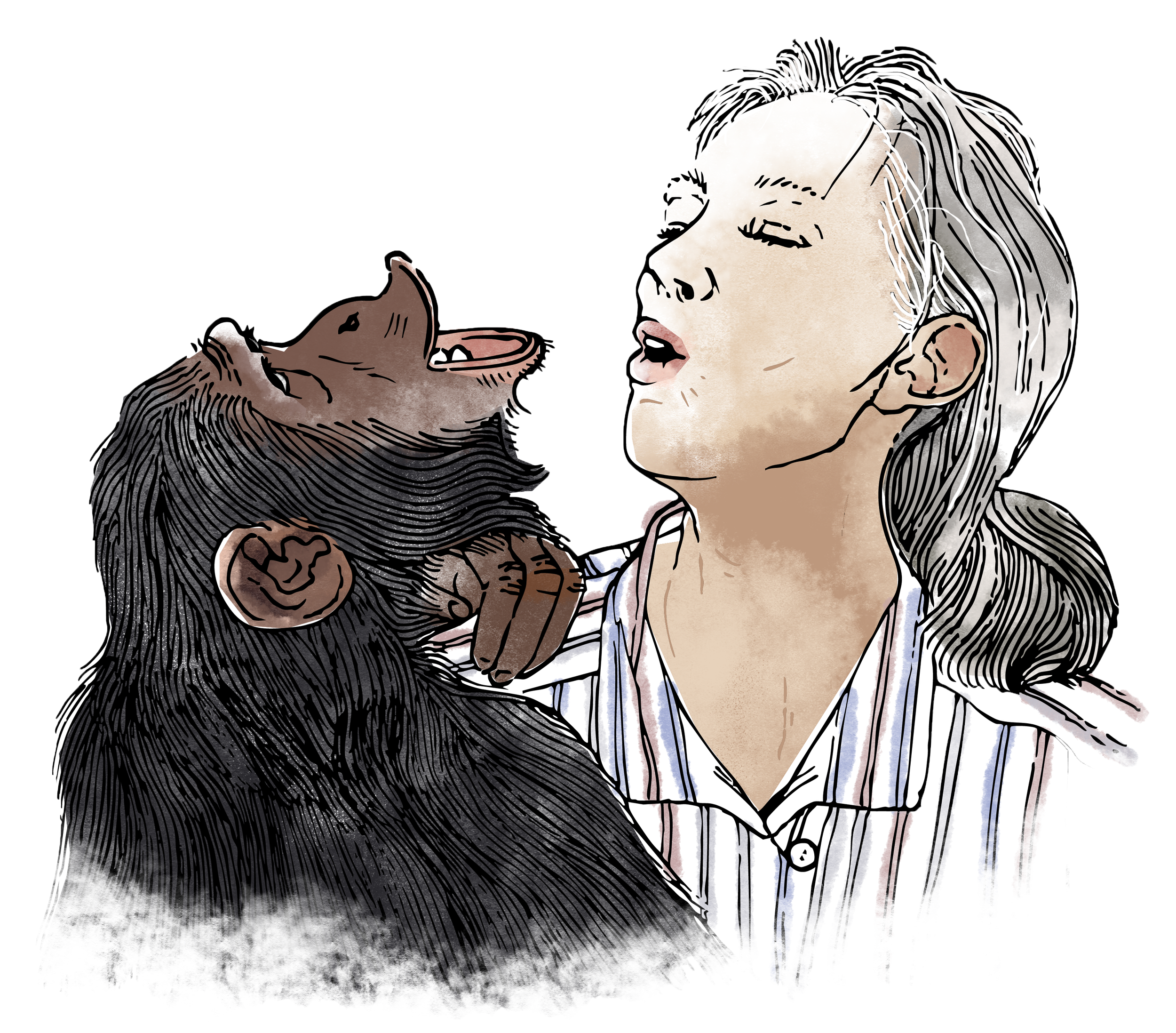
From Within
In Remembrance of Jane Goodall
1934–2025
BY TRACY BASILEOCTOBER 4, 2025I have taught her words and actions in the Animals and Society classes that I used to teach at Pace University in Pleasantville, New York. I'm so glad I did. I used to say, and still believe, that she is one of the most important scientists of the 20th century. She opened our stubborn shut Western eyes and made us see we are all related.
Goodall has always been an unstoppable force but now that she’s gone, I find it soothing to see social media flooded with quotes and short film clips of her interviews through the decades. I like listening to her, whether it’s about the power of small actions, the importance of young people, or the sheer brilliance and companionship of dogs. Maybe you do, too.
My eyes slowly roam through the comments on each post:
RIP. Rest easy, dear lady 🙏
One remarkable human being!
She was Mother Earth. ❤️❤️❤️
Her spirit is still at work.
She is the antidote. Be like Jane.
The world is a better place because of her.
🙏❤️😢
Reading these gives me a visceral sense of just how many of us there are. It feels empowering and comforting at the same time.
***
Instead of assigning a number (as was common practice among male wildlife researchers of her day) to each of the chimpanzees at Gombe Stream National Park in Tanzania who came under her watchful eye, she gave them names: David Greybeard, Flo, and Flint, Goliath, Mike, and more. This act alone stirred up controversy.
Wearing khaki shorts and shirt, carrying binoculars, lunch and a thermos of tea, every day she would walk up to the ridge of a hillside and sit all day waiting for the chimpanzees to come out in the valley below. It took six months of sitting there before they did, before they began to trust seeing her there. Then closer and closer she came until one day she observed David Greybeard preparing a long thin stick and carefully poking it into a mound of dirt. When he pulled it out of the mound, he quickly gobbled up whatever it was that was on the stick. Later that day, after the chimps had departed, Goodall got herself a stick and poked it into the same mound. When she pulled it out she saw a row of termites. Thus she discovered that making tools is not an attribute of humans alone. It was a discovery that rocked Western science.
She was only 26. Her mentor, the anthropologist Louis Leakey, told her no one of importance would take her extraordinary work seriously unless she had a PhD. Five years later she wrote up her research and earned a PhD from Cambridge in Ethology, but never stopped her unorthodox ways. She never gave in to replacing names with numbers and never stopped being patient, thus gaining greater insight into family relationships, individual personalities, and the diversity of chimpanzee emotions. Humans are not so extraordinary after all: “We are part of Mother Nature.”
She could have continued her life in the jungle, researching more and more (and indeed she did return many times) but her focus shifted. Instead, writes Nemonte Nenquimo, a member of the Waorani Nation in the Amazon, she “spent sixty years trying to make the world understand what Indigenous peoples have always known: that when we destroy nature, we destroy ourselves.” For us who are European, Euro-American, settler descendants, and newcomers to Turtle Island, this wisdom from a white woman who knew no bounds cracked our world wide open, insisting “change has to come from within.”
***
One commenter wrote: Be like Jane. Faced with so much, I ask myself what would Jane do? It’s no small task to change the world.
Or maybe it is.
“We all must do our bit.”
Notes:
Nemonte Nenquimo, an activist and member of the Waorani Nation from the Amazonian Region of Ecuador, is the author of “We Will Be Jaguars.” Her quote is from her FB page, October 4, 2025.

